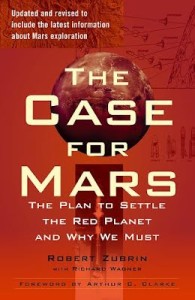by: Nicole Willett
An enormous amount of coverage regarding a human mission to Mars has recently inundated our televisions and the Internet. Some people are skeptical and others are on board and ready for humanity to take that step. Many organizations are planning a human mission to Mars. SpaceX founder Elon Musk has been quoted as saying he wants to “die on Mars”, and his company is currently developing the Falcon Heavy rocket which is designed to carry payloads large enough for a humans to Mars mission. Another organization called Mars One has started taking applications for their humans to Mars mission using a reality show format. They have received 78,000 applications in two weeks. The interest, leaning toward obsession, with settling the Red Planet is coming to a peak the size of Olympus Mons.
The most feasible plan to date is Inspiration Mars, a non-profit organization founded by millionaire Dennis Tito. His plan is to send two people, preferably a married couple, on a 500 day mission to get within 100 miles of the Red Planet and return to Earth. This is a fly-by mission, which will pave the way for future human missions to the surface of Mars and eventual settlement of the planet. Tito wants to have a human flyby in 2018, five years from now. This is an ambitious mission with clear goals and a clear timeline which is what we have been missing since Apollo. In reference to NASA’s 2030-something date to go to Mars, Tito stated, “I can’t wait until 2030. That’s too long of a time to maintain enthusiasm,” he said. “I think if we’re going to fly to Mars, we have to do it with a short sprint to show we can do it, and then we can take the time necessary to do the whole enchilada, which is boots on the ground.”
On May 8th in Washington, D.C. there was a Humans to Mars Summit to discuss these issues. The list of speakers was long and included Charles Bolden, NASA Administrator, Chris McKay, NASA Ames, and Buzz Aldrin, Apollo XI. Subjects discussed were: Human and robotic precursor missions, Humans to Mars: Science and Engineering, Living on Mars: Biomedical Challenges, Habitation & Life Support/Mobility & Space Suits and many more. The occurrence of this event at this time is very telling of the direction we humans are going in. That direction is Mars.
Buzz Aldrin, who spoke at the Humans to Mars Summit, has recently written a book entitled, Mission to Mars: My Vision for Space Exploration. This book discusses in detail Aldrin’s vision and ideas for the future of Mars human exploration and settlement. Aldrin speaks out as a very important and influential voice in the human quest to push the boundaries of our capabilities in the solar system. In his book he plots out his vision of putting humans on Mars by 2035 as well as for settling the Red Planet. As one of the first two men on the moon, it is vitally important to be aware of and to support his vision for human exploration and settlement of Mars. After all, he is a very courageous and forward thinking human to have risked his life to expand the human presence in the solar system. For that we owe him our gratitude.
There are several major reasons for humans to go to Mars. The following are excerpts from the Mars Society’s Founding Declaration, outlining the long-held beliefs of the organization’s founders, its membership and supporters in general.
“The time has come for humanity to journey to the planet Mars.
We’re ready. Though Mars is distant, we are far better prepared today to send humans to the Red Planet than we were to travel to the Moon at the commencement of the space age. Given the will, we could have our first crews on Mars within a decade.
The reasons for going to Mars are powerful.
We must go for the knowledge of Mars. Our robotic probes have revealed that Mars was once a warm and wet planet, suitable for hosting life’s origin. But did it? A search for fossils on the Martian surface or microbes in groundwater below could provide the answer. If found, they would show that the origin of life is not unique to the Earth, and, by implication, reveal a universe that is filled with life and probably intelligence as well. From the point of view learning our true place in the universe, this would be the most important scientific enlightenment since Copernicus.
We must go for the knowledge of Earth. As we begin the twenty-first century, we have evidence that we are changing the Earth’s atmosphere and environment in significant ways. It has become a critical matter for us better to understand all aspects of our environment. Mars, the planet most like Earth, will have even more to teach us about our home world. The knowledge we gain could be key to our survival.
We must go for the challenge. Civilizations, like people, thrive on challenge and decay without it. The time is past for human societies to use war as a driving stress for technological progress. As the world moves towards unity, we must join together in common enterprise, facing outward to embrace a greater and nobler challenge than that which we previously posed to each other.
We must go for the youth. The spirit of youth demands adventure. A humans-to-Mars program would challenge young people everywhere to develop their minds to participate in the pioneering of a new world [and promote the passion for STEM related subjects.] The net result would be tens of millions more scientists, engineers, inventors, medical researchers and doctors. These people benefit the world in innumerable ways to provide a return that will utterly dwarf the expenditures of the Mars program.
We must go for the opportunity. The settling of the Martian New World is an opportunity for a noble experiment in which humanity has another chance to shed old baggage and begin the world anew; carrying forward as much of the best of our heritage as possible and leaving the worst behind. Such chances do not come often, and are not to be disdained lightly.
We must go for our humanity. Human beings are more than merely another kind of animal, -we are life’s messenger. Alone of the creatures of the Earth, we have the ability to continue the work of creation by bringing life to Mars, and Mars to life. In doing so, we shall make a profound statement as to the precious worth of the human race and every member of it.
 We must go for the future. Mars is not just a scientific curiosity; it is a world with a surface area equal to all the continents of Earth combined, possessing all the elements that are needed to support not only life, but technological society. It is a New World, filled with history waiting to be made by a new and youthful branch of human civilization that is waiting to be born. We must go to Mars to make that potential a reality. We must go, not for us, but for a people who are yet to be. We must do it for the Martians.
We must go for the future. Mars is not just a scientific curiosity; it is a world with a surface area equal to all the continents of Earth combined, possessing all the elements that are needed to support not only life, but technological society. It is a New World, filled with history waiting to be made by a new and youthful branch of human civilization that is waiting to be born. We must go to Mars to make that potential a reality. We must go, not for us, but for a people who are yet to be. We must do it for the Martians.